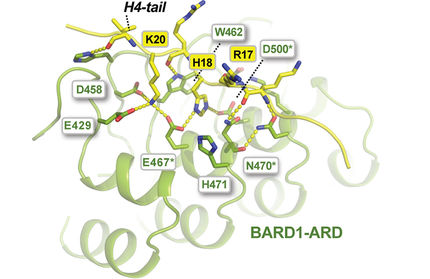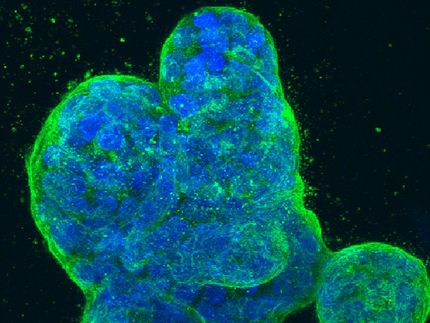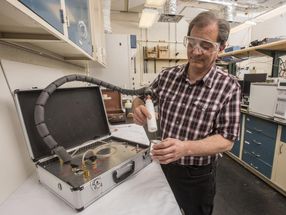Excess estrogen in pregnancy can silence BRCA1 in daughters, increasing breast cancer risk
Excess estrogen levels during pregnancy can disable, in their daughters, a powerful breast cancer tumor suppressor gene, say researchers at Georgetown Lombardi Comprehensive Cancer Center. They found the DNA repair gene BRCA1 to be silenced in one year-old girls exposed to a high hormonal fetal environment.
The researchers say their study, presented at the AACR Annual Meeting 2013, suggests that BRCA1 silencing by methylation in utero may be an important mechanism that increases breast cancer risk later in life. And they say that, if confirmed, there could be ways of lowering that risk before breast cancer develops.
"We may be able to identify women at increased risk of developing breast cancer by looking for BRCA1 that has been methylated as a marker of having been exposed to excess estrogen levels in utero," says the study's lead author, Leena Hilakivi-Clarke, PhD, a professor of oncology at Georgetown Lombardi.
Not only was BRCA1 silenced by methylation in the one-year-old girls who developed in a highly estrogenic fetal environment, there were other molecular abnormalities that can contribute to breast cancer risk and risk of breast cancer recurrence, says Hilakivi-Clarke.
For the study, the researchers compared the gene DNA methylation profiles of the daughters to publicly available databases collected from a large number of breast cancer patients in the Cancer Genome Atlas (TCGA). They found that those genes with altered methylation in the daughters of women with the highest pregnancy estradiol levels are also differentially methylated in breast cancer patients.
In addition to BRCA1, another gene abnormality found was in the unfolded protein response (UPR) pathway, which has been linked to breast cancer risk and resistance to tamoxifen, a treatment for breast cancer.
Researchers at Virginia Tech, who collaborated with Hilakivi-Clarke on this study, found that the UPR pathway was "hypomethylated" (genes were turned on or highly active), in the one-year old daughters. They further confirmed that the same UPR genes also were hypomethylated in breast cancers in women, compared to normal breast tissue, as well as in breast cancer cells that are resistant to tamoxifen treatment, compared to tamoxifen sensitive breast cancer cells.
"When these UPR genes are activated it means that damaged cells that should die do not, increasing the risk that cancer develops, and that cancer cells do not respond to treatment," says study collaborator, Robert Clarke, DSc, dean for research at Georgetown University Medical Center.
"Given these findings, perhaps we can identify those breast cancer patients who develop resistance to hormonal therapy and are at high risk of recurrence," Hilakivi-Clarke says. "Because several drugs are now available to reverse an increase in gene methylation, it may be possible to reverse the increase in breast cancer risk and prevent development of resistance to tamoxifen in these women."
"It does not matter how BRCA1 is eliminated – by mutation or epigenetic silencing – the end result is the same: there is less BRCA1 to defend the cells from becoming cancerous," she says.
Other news from the department science

Get the life science industry in your inbox
From now on, don't miss a thing: Our newsletter for biotechnology, pharma and life sciences brings you up to date every Tuesday and Thursday. The latest industry news, product highlights and innovations - compact and easy to understand in your inbox. Researched by us so you don't have to.



















































